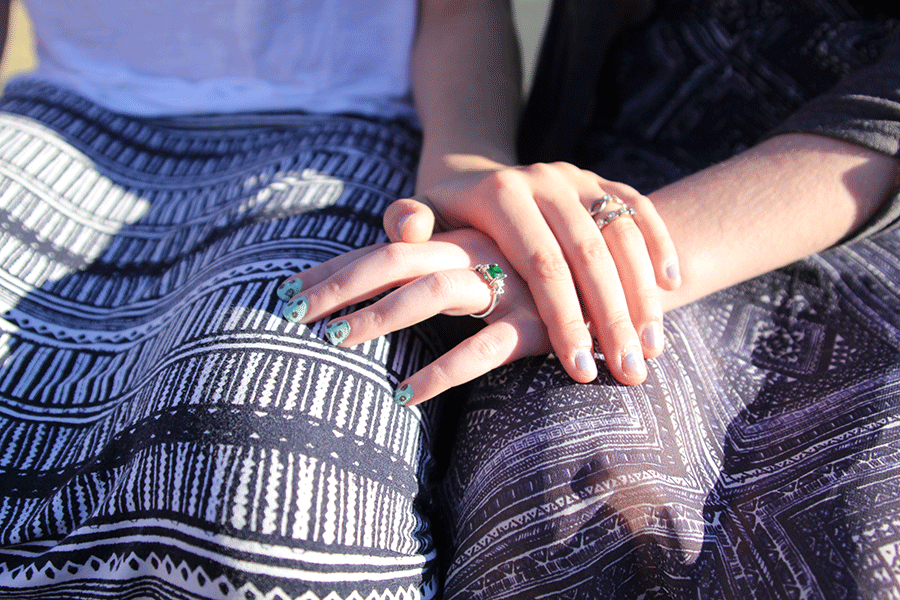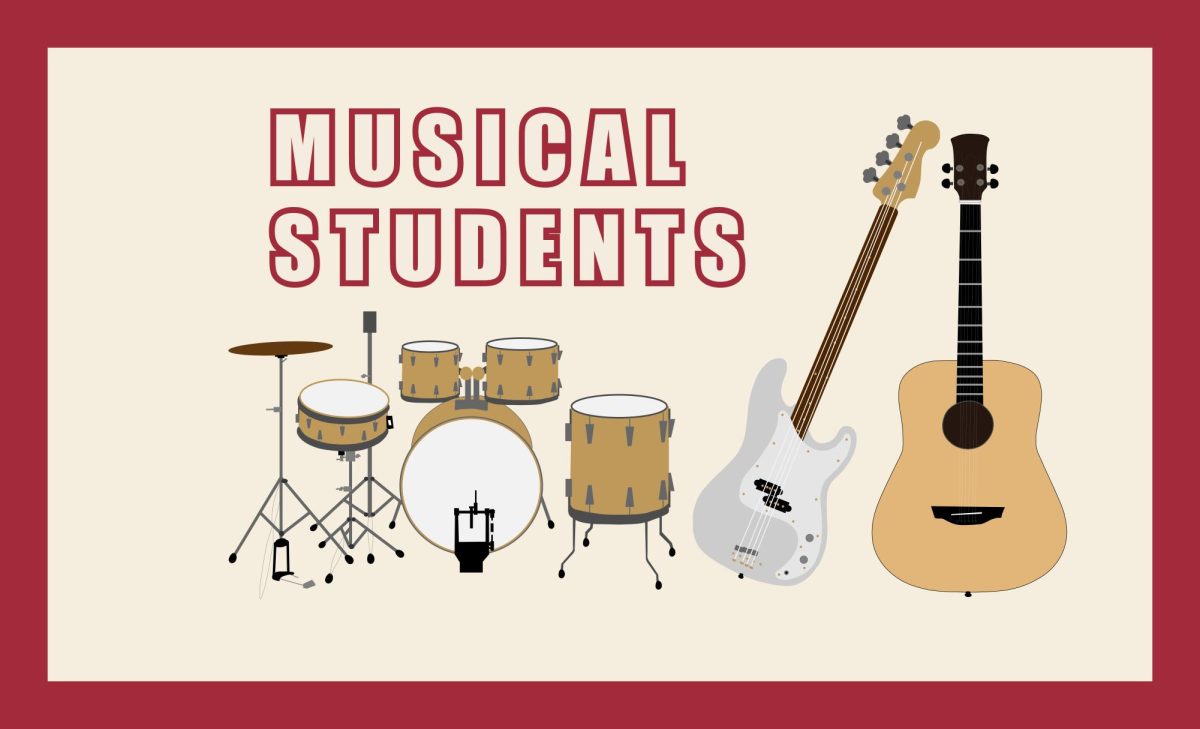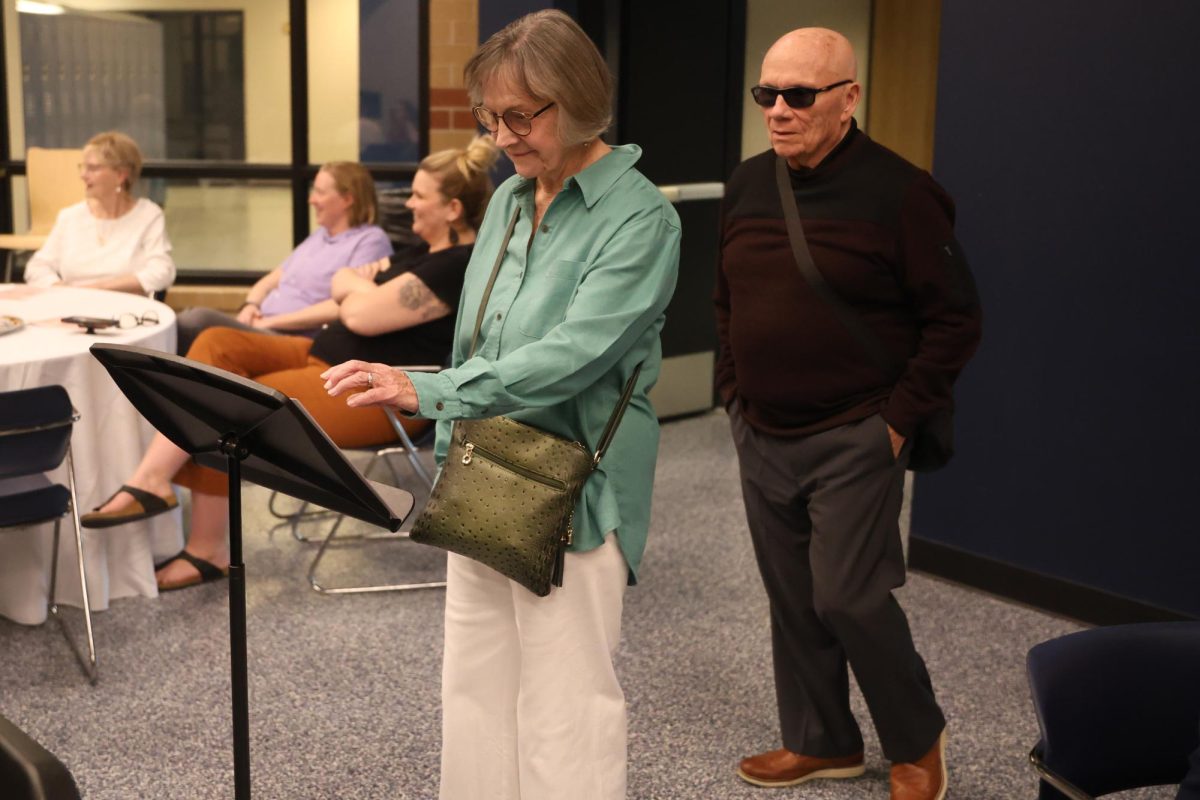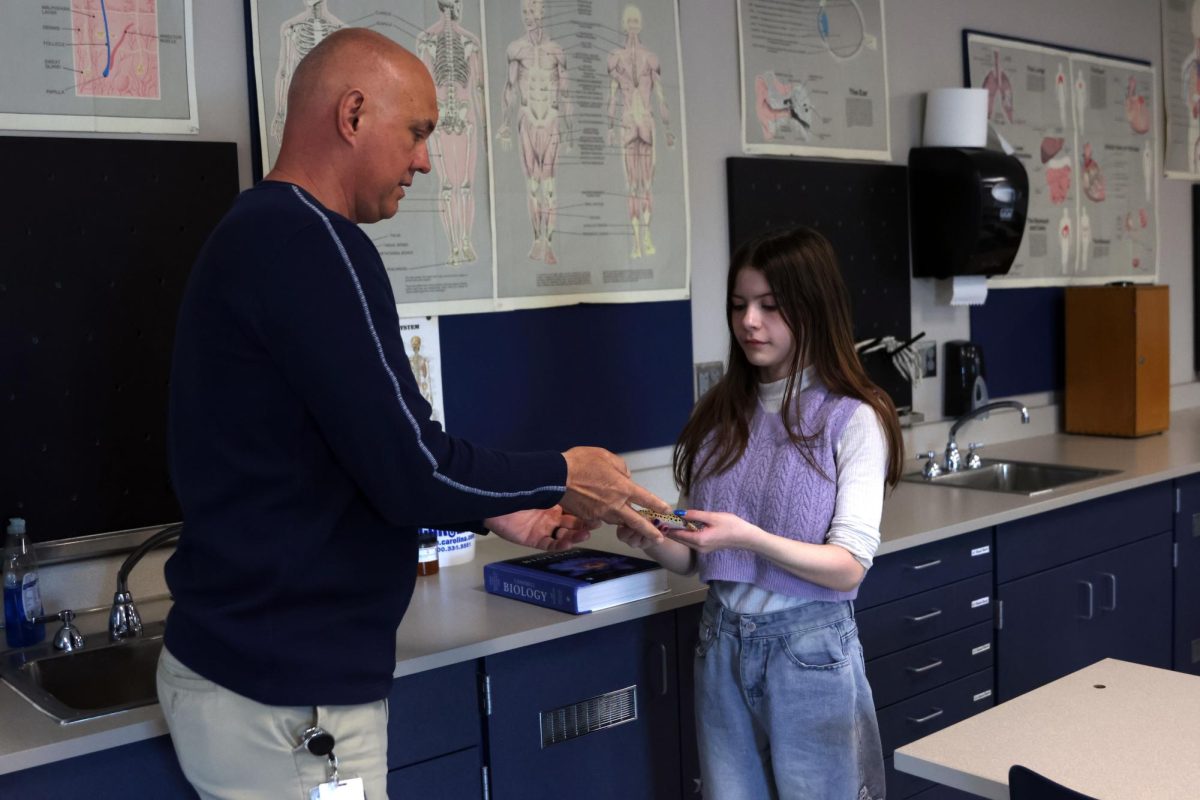Same-sex marriage ban lifted in Kansas
Lifting the ban prompted a variety of student opinions
December 9, 2014
Due to a recent Kansas Supreme Court decision, lesbian, gay, bisexual and transgender people living in Kansas, such as freshman Parker Johnson, can now realize a dream they have had for quite some time—legally getting married.
“It is awesome to know I can get married here in front of my family [and] in the area I was raised in,” Johnson said.
On Tuesday, Nov. 18, the Kansas Supreme Court lifted a temporary stay on issuing same-sex marriage licenses in Johnson County. Two weeks prior, a U.S. district court lifted Kansas’ ban on same-sex marriages. This ruling did not affect Johnson County, as the stay had prevented them from issuing same-sex marriage licenses after they began to on Thursday, Oct. 9.
According to the Kansas Equality Coalition, 29 Kansas counties currently issue same-sex marriage licenses. Nine counties do not issue marriage licenses as of now, according to 4th district court administrator John Steelman, 13th district judge David Ricke and American Civil Liberties Union of Kansas legal director Doug Bonney.
Senior Monica Brich, president of GSA, supports the decision to lift Kansas’ ban on same-sex marriage.
“I am so excited,” Brich said. “I’m hoping by the end of next year all states will legalize it.”
Johnson sees lifting the ban as having a positive effect on LGBT people in Kansas.
“The LGBT community won’t be as oppressed,” Johnson said.
A Mill Valley News online poll of 187 students found 60 percent of students support same-sex marriage. Although she is in favor of same-sex marriage, senior Aislynn Quinn did not expect the ban to be lifted in Kansas.
“I was surprised because we’re such a conservative area,” Quinn said.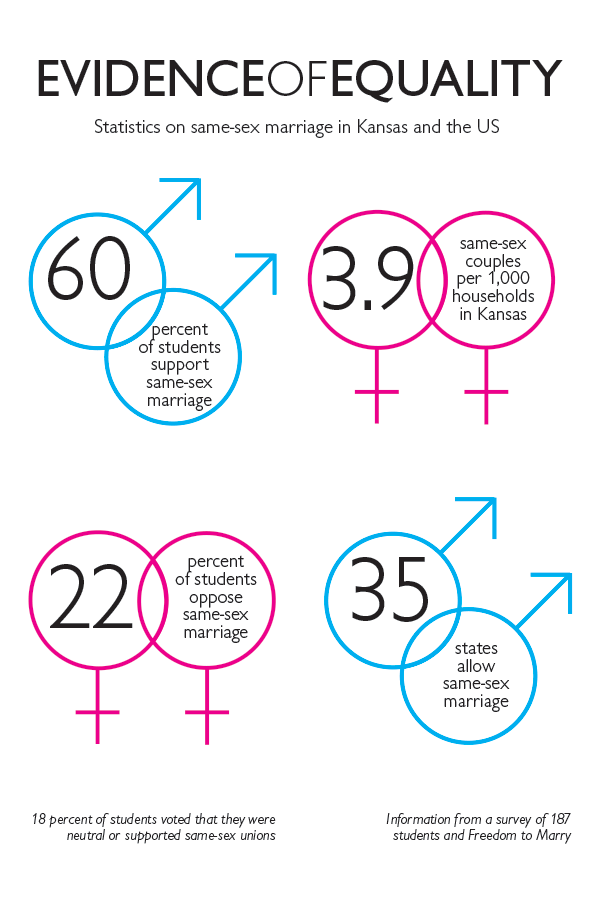
Attorney General Derek Schmidt said in a written statement that the state would work toward appealing the ruling.
“Because a provision in the Kansas Constitution is at peril, the State of Kansas will continue its defense in federal court as long as a defense is properly available.” Schmidt said.
Some students, such as senior CJ Davis, disagree with the lifting of the ban.
“I don’t think it should be called a marriage,” Davis said. “I think it should be a union because a marriage is between a guy and a girl.”
About 22 percent of students surveyed are against same-sex marriage, including a sophomore who did not want his name used.
“Personally I don’t believe in it,” the source said. “I believe [people are LGBT] by choice because you have the power of choice.”
Brich sees no reason to oppose same-sex marriage.
“I’m sorry [people] don’t agree with it but it’s time for change,” Brich said. “It’s time for love.”
Others share this view. Plymouth Congregational Church senior pastor Peter Luckey said marriage rights “should be extended to anyone.” Luckey performed one of the first same-sex weddings inside a church in Kansas.
“It was incredibly joyful and it’s hard to describe the depth of joy in the room,” Luckey said via phone. “As soon as I said ‘by the laws of the state of Kansas,’ people cheered.”
Although the ban has been lifted, Luckey said progress still needs to be made for students.
“I’m concerned about young people and teenagers,” Luckey said. “There’s a lot of bullying that goes on in our society … We just need to constantly be standing up on behalf of the LGBT community.”
Despite the fact that they are both Christians, the anonymous source’s views on marriage differ from Luckey’s.
“It’s just my moral beliefs because I’m a Christian,” the anonymous source said. “I just believe that we really shouldn’t have [same-sex marriage] yet because a lot of people aren’t comfortable with it yet.”
In the future, Johnson wishes to see more people comfortable with same-sex marriage.
“I would like the world to be happy,” Johnson said. “[I want to] have everyone agree with same-sex marriage.”



